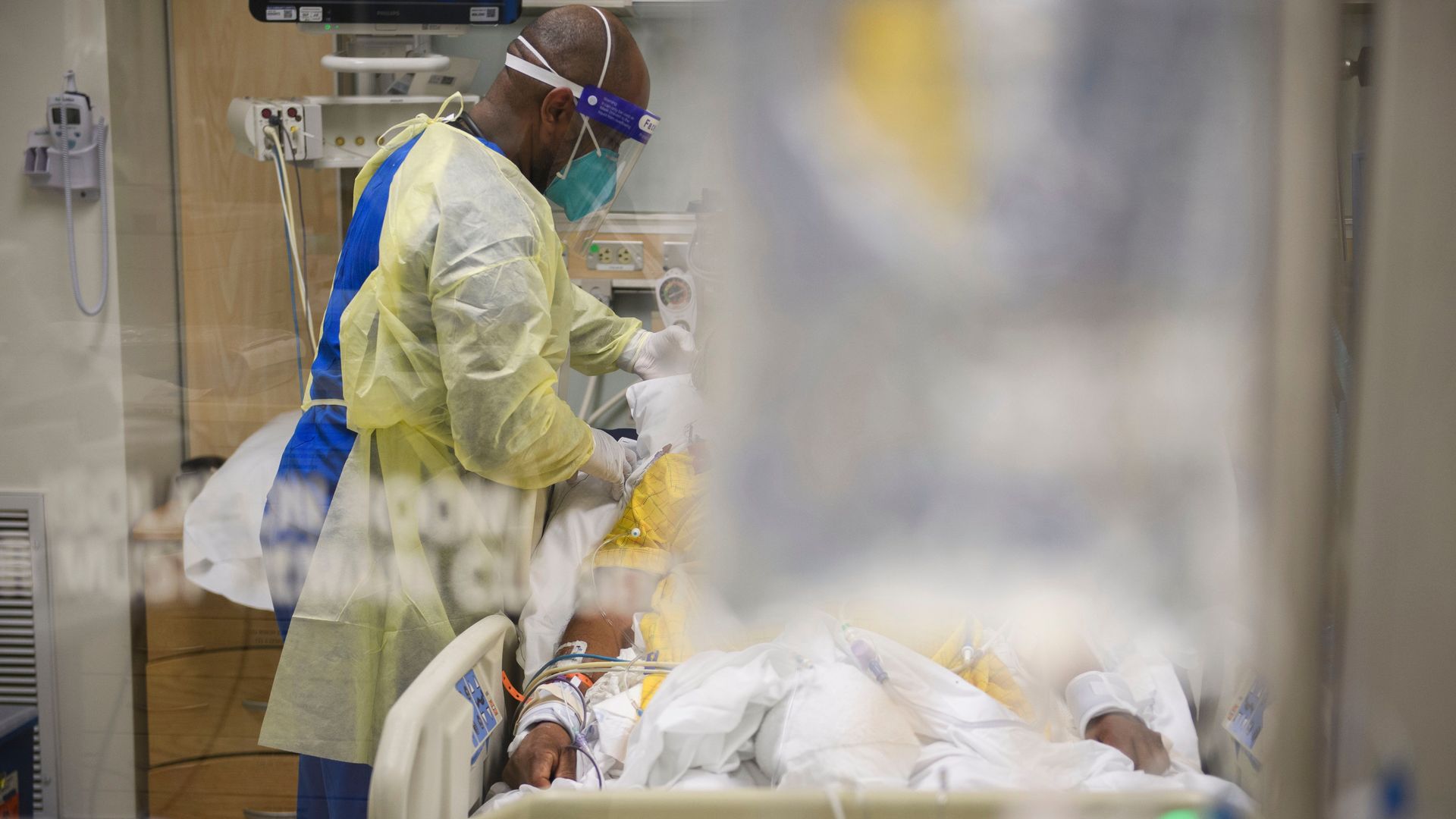Jan 12, 2022 - Health
Study: Omicron associated with 91% reduction in risk of death compared to Delta
Add Axios as your preferred source to
see more of our stories on Google.

Nurses wearing PPE attend to patients in a Covid-19 ICU at Martin Luther King Jr. Community Hospital on Jan. 6, 2021 in Los Angeles, California. Photo: PATRICK T. FALLON/AFP via Getty Images
